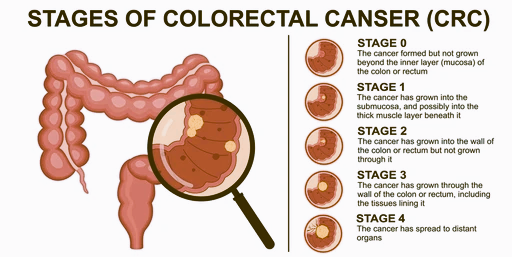Colon and Rectal Cancer: Causes, Symptoms, and Treatment
Learn about rectal cancer, including its causes, symptoms, and treatment options. Stay informed to effectively manage and prevent colon and rectal cancer. #Rectal Cancer


Introduction
Colon and rectal cancer, also known as colorectal cancer, is a type of cancer that affects the colon or rectum. It is one of the most common types of cancer worldwide. In this article, we will explore the causes, symptoms, and treatment options for colon and rectal cancer.
Causes of Colon and Rectal Cancer
The exact cause of colon and rectal cancer is not fully understood, but several risk factors have been identified. These include:
Age: The risk of developing colon and rectal cancer increases with age, with most cases occurring in individuals over 50 years old.
Family history: People with a family history of colon or rectal cancer are at a higher risk of developing the disease.
Genetic factors: Certain genetic conditions, such as Lynch syndrome and familial adenomatous polyposis (FAP), increase the risk of colon and rectal cancer.
Diet: A diet high in red and processed meats, low in fiber, fruits, and vegetables, and high in fat may increase the risk of developing colorectal cancer.
Lifestyle factors: Smoking, excessive alcohol consumption, obesity, and lack of physical activity have also been linked to an increased risk of colon and rectal cancer.
Symptoms of Colon and Rectal Cancer
The symptoms of colon and rectal cancer can vary depending on the stage of the disease. Some common symptoms include:
Changes in bowel habits, such as diarrhea or constipation
Blood in the stool or rectal bleeding
Abdominal pain or discomfort
Unexplained weight loss
Fatigue or weakness
Iron deficiency anemia
Treatment Options
The treatment for colon and rectal cancer depends on several factors, including the stage of the cancer, the location of the tumor, and the overall health of the patient. Common treatment options include:
Surgery: Surgery is often the first-line treatment for colon and rectal cancer. It involves removing the tumor and nearby lymph nodes.
Chemotherapy: Chemotherapy uses drugs to kill cancer cells or stop them from growing. It is often used before or after surgery to reduce the risk of recurrence.
Radiation therapy: Radiation therapy uses high-energy beams to kill cancer cells. It is sometimes used in combination with surgery or chemotherapy.
Targeted therapy: Targeted therapy drugs specifically target certain genes or proteins that are involved in the growth of cancer cells.
Regular screening, such as colonoscopies, can help detect and remove polyps before they become cancerous.
Adopting a healthy lifestyle, including a balanced diet rich in fiber, regular exercise, and avoiding tobacco and excessive alcohol, may reduce the risk.
Conclusion
Colon and rectal cancer is a serious disease that requires early detection and proper treatment. Understanding the causes, recognizing the symptoms, and seeking timely medical intervention can greatly improve the chances of successful treatment. Regular screenings, adopting a healthy lifestyle, and being aware of the risk factors can also help in the prevention of colon and rectal cancer.
